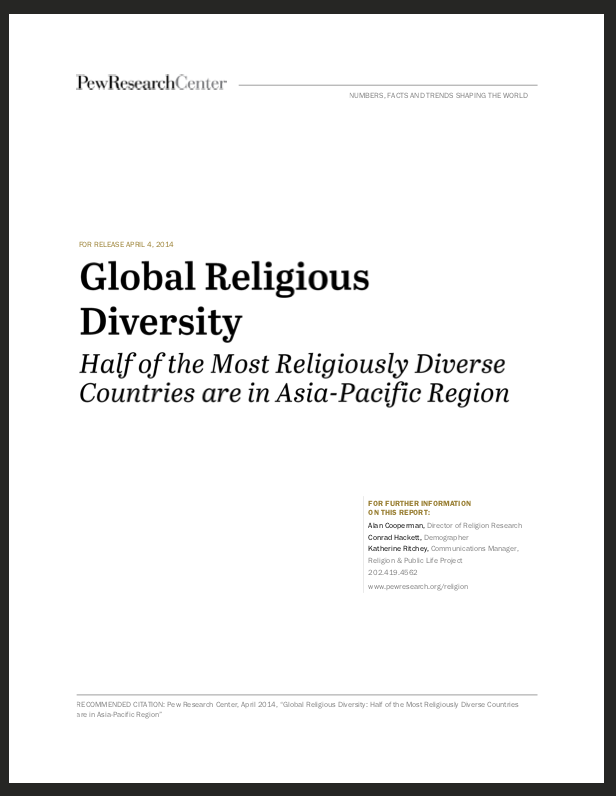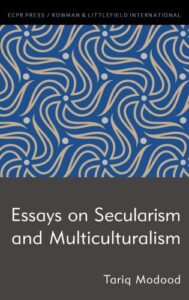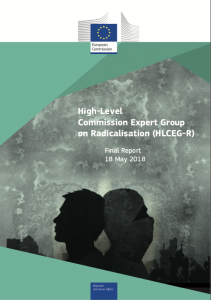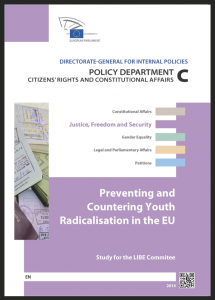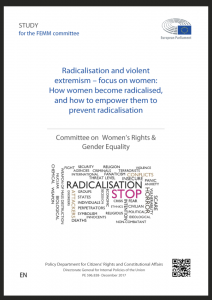Thematic orientation
Here’s a collection of mainly third-party background materials assembled toward the start of the project. Each item illuminates our subject in a notable way.
- Religious Diversity
- Secularism and State-Religion Relations
- Religious Radicalism and Extremism
- Counter-Radicalisation Policy
Opinions attributable solely to the authors.
Religious Diversity
Global Religious Diversity – demographic index
2014 survey of religious diversity around the world. Highlights regional trends. From the Pew Research Center – April 2014.
http://www.pewresearch.org/wp-content/uploads/sites/7/2014/04/Religious-Diversity-full-report.pdf
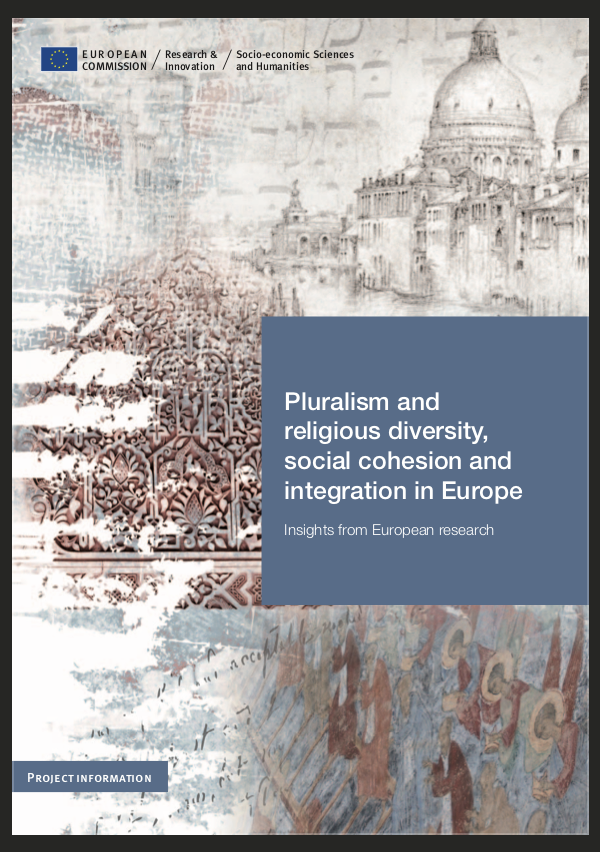
Pluralism and religious diversity, social cohesion and integration in Europe: Insights from European Research
A summary of several past EU-funded research projects addressing pluralism and religious diversity.
https://www.net4society.eu/_media/pluralism-and-religious-diversity_en.pdf
Religious Diversity (Pluralism) – Stanford Encyclopaedia of Philosophy
Entry from encyclopaedic reference work reviewing key philosophical issues relating to religious diversity.
https://plato.stanford.edu/entries/religious-pluralism/
Secularism and State-Religion Relations
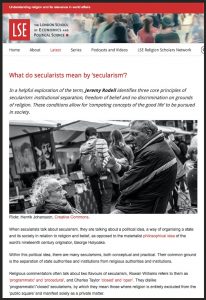
What do secularists mean by ‘secularism’?
Blog article exploring basic principles of secularism. From Jeremy Rodell, Dialogue Officer for Humanists UK, a charitable organisation serving non-religious people. Published by LSE Religion and Global Society, an interdisciplinary blog from the London School of Economics and Political Science.
https://blogs.lse.ac.uk/religionglobalsociety/2019/01/what-do-secularists-mean-by-secularism/
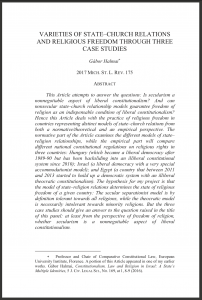
Varieties of State–Church Relations and Religious Freedom through Three Case Studies
Journal article by Gábor Halmai examining three models of state religion relations by example of Hungary, Israel and Egypt. Published 2017 in the Michigan State Law Review.
https://me.eui.eu/gabor-halmai/wp-content/uploads/sites/385/2018/05/Varieties-of-State-Church-Relations-and-Religious-Freedom-Through.pdf
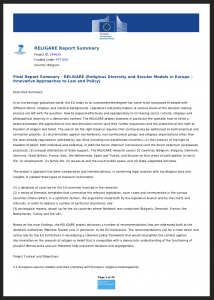
Final Report Summary – RELIGARE (Religious Diversity and Secular Models in Europe – Innovative Approaches to Law and Policy)
2013 research report from EU-funded project comparing European models of secularism as they relate to religion. Examines tensions between freedom of religion and belief, on the one hand, and the principle of non-discrimination on the other.
https://cordis.europa.eu/result/rcn/143814_en.html
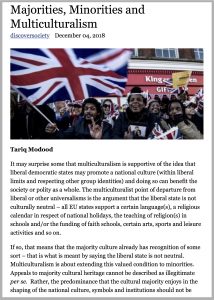 Majorities, Minorities and Multiculturalism
Majorities, Minorities and Multiculturalism
Blog article by GREASE consortium member Tariq Modood. Describes Britain’s multiculturalist (but not neutral) approach to governing religious diversity.
https://discoversociety.org/2018/12/04/majorities-minorities-and-multiculturalism/
Essays on Secularism and Multiculturalism
Book-length collection of seminal articles on secularism and multiculturalism by GREASE’s Tariq Modood. (Published 2019 by Rowman & Littlefield – available for purchase here.) The book has spawned multiple symposia in academic journals which are documented on Professor Modood’s website here.
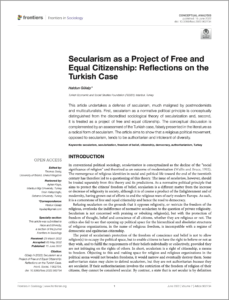
Secularism as a Project of Free and Equal Citizenship: Reflections on the Turkish Case
A defence of secularism from GREASE consortium member Haldun Gülalp. Conceptually distinguishes secularism as a normative political principle from the sociological theory of secularization. Published 2022 in the journal Frontiers of Sociology.
https://doi.org/10.3389/fsoc.2022.902734
Religious Radicalisation and Extremism
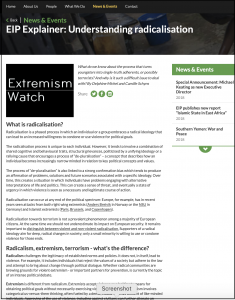
Understanding Radicalisation – An explainer from the European Institute for Peace.
A thumbnail explanation of the phenomenon of radicalisation. Outlines distinctions between radicalism, extremism and terrorism and mentions factors affecting violent extremism. Includes links to sources for further reading.
http://www.eip.org/en/news-events/eip-explainer-understanding-radicalisation
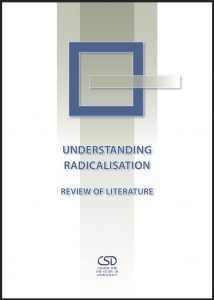
Understanding Radicalisation: Review of Literature
Aimed at social scientists, this 80-page publication reviews key academic concepts and debates concerning radicalisation. Published in 2016 by GREASE partner CSD, it includes sections on Islamist radicalisation and online recruitment.
http://www.csd.bg/artShow.php?id=17560
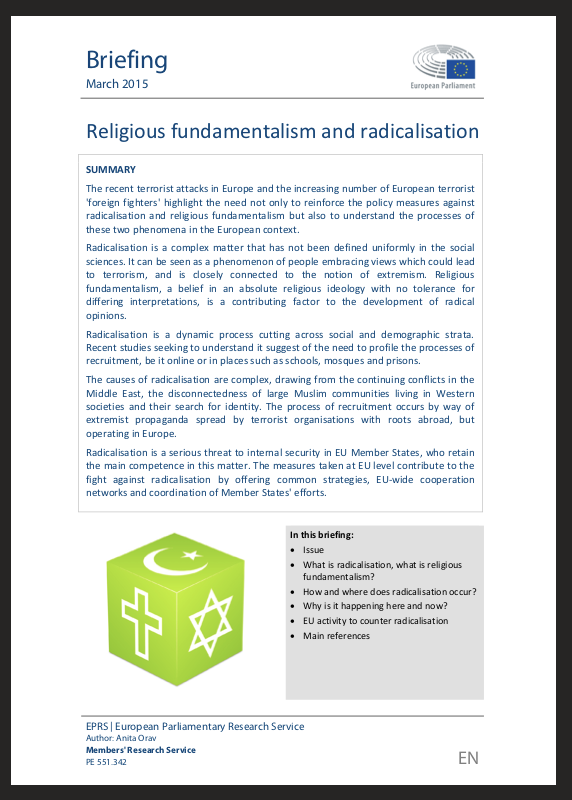
Briefing on Religious Fundamentalism and Radicalisation
A seven-page sketch of religious radicalisation in Europe- where it comes from, how it’s evolving and what’s being done to counter it. Produced by the European Parliamentary Research Service in 2015.
http://www.europarl.europa.eu/EPRS/EPRS-briefing-551342-Religious-fundamentalism-and-radicalisation-FINAL.pdf
Policies for Countering Radicalisation
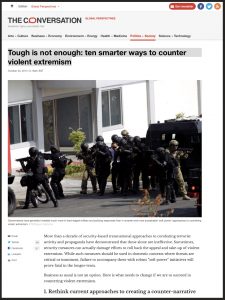 Tough is not enough: ten smarter ways to counter violent extremism
Tough is not enough: ten smarter ways to counter violent extremism
Blog article by GREASE consortium member Michele Grossman offering 10 concrete suggestions on how to go about countering violent extremism.
https://theconversation.com/tough-is-not-enough-ten-smarter-ways-to-counter-violent-extremism-32690
Final Report of the High-Level Commission Expert Group on Radicalisation – 2018
Conclusions of expert group on radicalisation convened by the European Commission. Includes policy recommendations on how to cooperatively prevent radicalisation in the EU.
https://ec.europa.eu/home-affairs/sites/homeaffairs/files/what-we-do/policies/european-agenda-security/20180613_final-report-radicalisation.pdf
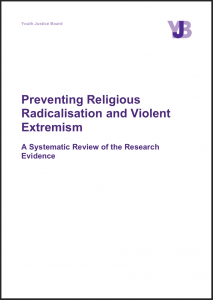
Preventing Religious Radicalisation and Violent Extremism – A Systematic Review of the Research Evidence
Covers theories of radicalisation as well as models of the radicalisation process, including that utilised by the New York Police Department. Published 2012 by the Youth Justice Board for England and Wales; authored by Kris Christmann of the University of Huddersfield.
https://www.safecampuscommunities.ac.uk/uploads/files/2016/08/yjb_preventing_violent_extremism_systematic_review_requires_uploading.pdf
Preventing and countering youth radicalisation in the EU
Describes youth radicalisation process in Europe, reviews counter measures and offers recommendations. 2014 study commissioned by EU parliament’s policy department.
http://www.europarl.europa.eu/RegData/etudes/etudes/join/2014/509977/IPOL-LIBE_ET(2014)509977_EN.pdf
Radicalisation and violent extremism – focus on women: How women become radicalised, and how to empower them to prevent radicalisation
2018 study from policy section of EU Commission’s interior affairs directorate. Focuses on Islamist radicalisation and violent extremism in the EU.
http://www.europarl.europa.eu/RegData/etudes/STUD/2017/
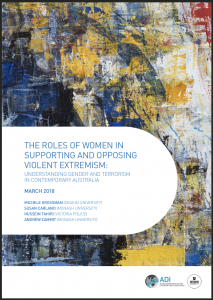 The Roles of Women in Supporting and Opposing Violent Extremism: Understanding Gender and Terrorism in Contemporary Australia
The Roles of Women in Supporting and Opposing Violent Extremism: Understanding Gender and Terrorism in Contemporary Australia
Public-release version of 2018 report co-authored by GREASE’s Michele Grossman. Features detailed suggestions on countering violent extremism, including “new approaches to mobilising women of faith”.
https://www.avert.net.au/s/Women-and-VE-CVESC-Report_FINALLowRes-m6gx.pdf
RAN – Europe’s Radicalisation Awareness Network
RAN is the European Commission’s umbrella network for countering radicalisation. A network of practitioners working with people who have been radicalised, or who are vulnerable to radicalisation. Includes police and prison authorities, teachers, youth workers, and healthcare professionals.
Link to RAN Website: https://ec.europa.eu/home-affairs/what-we-do/networks/radicalisation_awareness_network_en
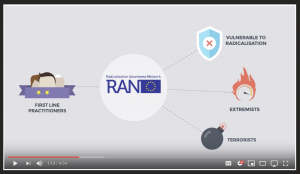 VIDEO introducing RAN
VIDEO introducing RAN
https://www.youtube.com/watch?v=Z8Vy7wxQ-ik&feature=youtu.be

